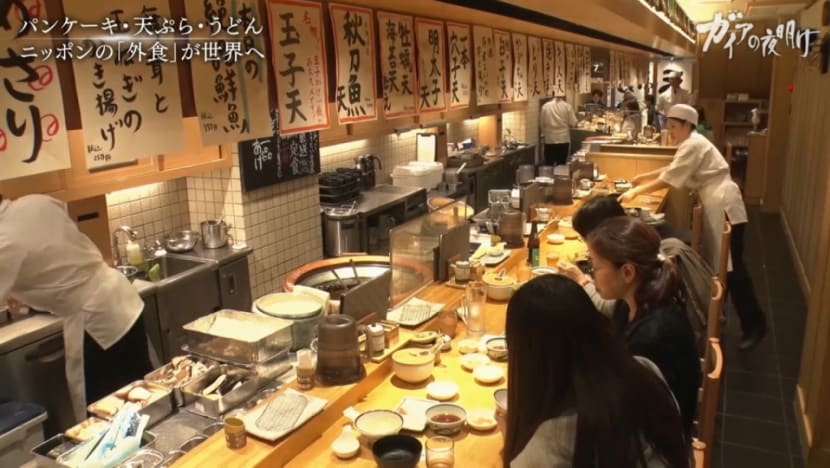Gaia Series 77: The "King of Eating Out"!
In this week’s episode, Toridoll Holdings aims to expand its restaurant empire worldwide, facing market challenges and stiff competition.


This audio is generated by an AI tool.
Toridoll Holdings is on a mission to globalise Japanese cuisine, but can it compete with industry giants?
Toridoll Holdings, the company behind Marugame Udon, is setting its sights on global domination. With an already extensive portfolio of 2,015 restaurants worldwide offering 20 different varieties of cuisine, the company’s president, Takaya Awata, has an ambitious goal: to expand to 4,900 stores by 2027 and compete with fast-food giants like McDonald’s and Starbucks.
But as the company ventures beyond Japan, challenges loom large.
In Japan, Toridoll’s brands are already household names. From Marugame Udon, which has over 850 stores across the country, to Makino, a popular tempura chain, and Konazu Coffee, known for its Hawaiian-style pancakes, the company has successfully tapped into Japan’s love for quality, affordable food. However, breaking into international markets requires more than just good food—it demands strategic planning, cultural adaptability and strong partnerships.
“We need to expand overseas if we want to have a future,” says Awata. “Now is the time to establish a solid headquarters or a base overseas. It is extremely important for our future growth.”
One of Toridoll’s key expansion targets is Thailand which is a gateway to the rest of Asia. They previously attempted to establish Marugame Udon but withdrew in 2020 due to market uncertainties and the pandemic. Determined not to repeat past mistakes, the company has conducted extensive market research, including taste tests with 300 participants, to refine their offerings for local consumers. Preliminary results were promising — 75 per cent of participants expressed interest in visiting a Marugame restaurant.
“The udon is soft, yet still satisfying to bite into,” noted one Thai participant during the taste tests. “The temperature of the soup and the taste were both perfect.”
Armed with these insights, Toridoll pursued a high-stakes partnership with CP Group, Thailand’s largest conglomerate, which operates 15,000 7-Eleven stores and has annual sales of 14 trillion yen (S$122 billion) . A deal with CP Group would provide Toridoll with a powerful launchpad not just in Thailand, but across Asia. However, just as the contract was about to be signed, the highest-ranking executive in CP Group’s food sector called for a pause, citing concerns about Toridoll’s past market exit.
With the deal in jeopardy, Toridoll’s deputy president, Takashi Sugiyama, flew to Thailand in a last-ditch effort to salvage negotiations. Sugiyama, who joined Toridoll five years ago, has experience in opening restaurants in overseas markets such as China. After hours of uncertainty, CP Group’s CEO, Prasit, agreed to meet with him. “Hopefully, we have something good together,” Prasit said. “All we need to do is make this initiative a success. So, let's work together to achieve that.” With that, the deal was back on track.
While Thailand remains a critical part of Toridoll’s expansion, the company is also re-entering South Korea, where they previously faced boycotts that forced them out. This time, they are partnering with Lotte Group, aiming to open over 50 stores in the coming years.
Beyond expansion, Toridoll is also looking inward, focusing on the very core of its business — udon. To elevate the quality of its noodles, the company has established a unique training facility on the island of Sanuki Hiroshima in Kagawa Prefecture, the birthplace of sanuki udon. Dubbed Kokoro-no-Honten, this centre serves as a “spiritual hub” for Marugame Udon, where noodle makers are trained in traditional methods, from wheat harvesting to salt production.
This is also where the company experiments with adapting flavours and recipes to suit overseas markets. One example is a halal ramen recipe, cooked with white chicken broth, that can cater to Indonesian Muslims. This is all part of Toridoll’s drive to expand overseas.
As Toridoll strengthens its foundations, it also faces growing competition at home. Japan’s largest family restaurant chain Sukesan Udon, backed by Skylark Holdings which operates about 3,000 restaurants, is aggressively expanding into Kanto, challenging Marugame Udon’s dominance. Sukesan’s approach differs from Marugame’s; While the latter focuses purely on udon, Sukesan offers a vast menu of over 100 items, catering to a wider audience.
Sukesan’s expansion strategy mirrors Toridoll’s — careful test marketing before full-scale launches. A three-day pop-up shop in Tokyo saw queues of 400 people and over 1,200 meals sold. Encouraged by the response, Skylark plans to open 210 Sukesan Udon outlets in the next three to five years, with ambitions to reach 1,000 stores, including in Southeast Asia.
“Well, of course, we respect Skylark as one of the leading F&B companies in Japan,” Awata acknowledges. “For such a big company to show interest in udon did make us feel nervous for a moment. I think the best thing we can do is keep moving forward and stay vigilant.”
Despite the competition and the financial strains of rapid expansion — Toridoll reported a 10 per cent drop in profits due to overseas challenges — Awata remains steadfast in his vision. “We must always strive to move forward,” he says. “Our overseas operations will be a great boost to the company. I’m confident that such a time will definitely come.”
With strategic global partnerships, a renewed focus on quality, and an unwavering commitment to growth, Toridoll is determined to claim its place as a dominant force in the international restaurant industry. The battle for the udon restaurant crown is just beginning.












